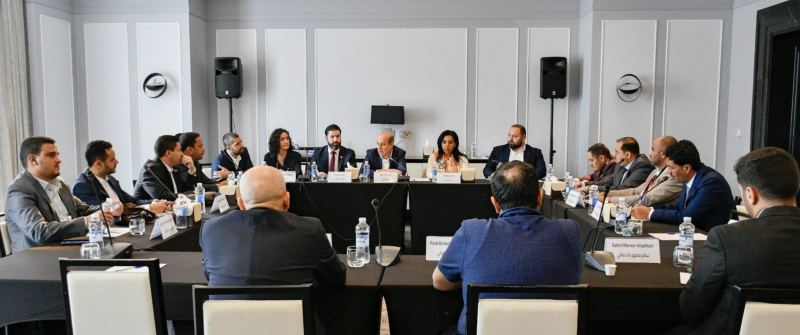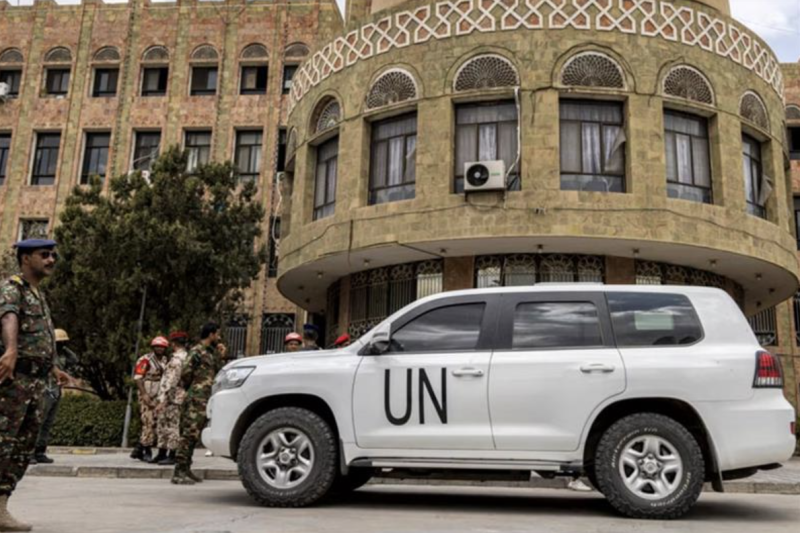Trump Administration Plans to Designate Yemen’s Houthis as Terrorists


The move, opposed by the humanitarian community, is part of the administration’s pressure campaign on Iran—and could hamstring Biden.
The Trump administration is preparing to designate Yemen’s Iran-backed Houthi insurgents a terrorist organization before leaving office in January, fueling fears the move will disrupt international aid efforts and upend United Nations-brokered peace efforts between the Shiite movement and the Saudi-backed Yemeni government, according to several diplomatic sources.
The U.N. and international relief agencies have tried to dissuade the Trump administration from designating the Houthis a foreign terrorist organization, but the apparently imminent decision would give U.S. Secretary of State Mike Pompeo another victory in his anti-Iran strategy as he visits Israel, Saudi Arabia, and the United Arab Emirates this week. Riyadh, which has been at war with the Houthis for over five years, has already designated the Houthis a terrorist organization and has been urging Washington to do the same.
“They have been contemplating this for a while, but Pompeo wants this fast-tracked,” said one diplomatic source. “It’s part of the scorched-earth policy the sour grapes in the White House are taking.”
In recent weeks, the U.N. special envoy for Yemen, Martin Griffiths, has been pressing the United States to back down and appealing to U.N. Secretary-General António Guterres to intervene with Pompeo, according to diplomatic sources. Last month, Guterres urged Kelly Craft, the U.S. ambassador to the U.N., to reconsider plans to list the Houthis as a terrorist organization. Germany and Sweden have also pressed the United States to back down. But the effort has apparently foundered, and the U.N. has begun preparing the groundwork for a U.S. decision to list the Houthis.
The U.S. Department of Defense and career experts in the State Department are said to be against the move. A coalition of international charities, meanwhile, are preparing a joint statement anticipating the designation, comparing the potential impacts to the famine in Somalia after the U.S. designated al-Shabab as a terrorist group in 2008.
“It is a mistake. This is an inflammatory move from Secretary of State Pompeo and the Trump administration to take,” said Gregory Johnsen, a nonresident fellow at the Brookings Institution. “It would basically box in the new president when he wants to take a new approach to the war in Yemen, and cut back on the Saudi war.”
Diplomats opposing the move have also tried to sway Republican Sen. Lindsey Graham, a powerful ally of outgoing President Donald Trump who heads up the Senate Appropriations Committee’s foreign affairs panel, to come out against the designation. But Democrats in Congress who have long been calling for the Trump administration to hold Saudi Arabia accountable for its role in the war are worried that the label could undermine fragile peace talks in the war-torn nation.
Sen. Chris Murphy, a Democratic member of the Senate Foreign Relations Committee, said any such designation would be a “clear attempt by the Trump administration to hamstring future peace negotiations.”
“The Houthis and their financial supporters are already subject to U.S. sanctions, so the practical impact of the designation would be exclusively to make it more difficult to negotiate with Houthi leaders and to deliver aid to Houthi-controlled areas, where the majority of Yemenis still live,” Murphy said.
“There is no doubt that the Houthis have led a brutal military campaign that has starved, imprisoned and killed many civilians,” Murphy added. “But if the U.S. government is going to designate international actors for intentionally harming civilians in Yemen, the Saudi-led coalition should also be at the top of that list.”
The move appears to be part of a broader push by the White House and Pompeo to ratchet up pressure on Iran and its Middle East allies in the administration’s final months in office, a development that is likely to complicate efforts by President-elect Joe Biden to reopen talks with Iran over its nuclear program. During his presidential campaign, Biden pledged to rejoin the Iran nuclear deal negotiated in 2015 by the Obama administration but abandoned by Trump two years ago.

Muscat – A source has revealed that limited progress has been achieved in the ongoing Yemeni consultations between the government and Houthi…

Hodaiedah -- The Directorate General of Shipping has announced that all 11 vessels stranded at Ras Isa Port in Yemen, which collectively carried ov…

Sana’a – The United Nations has strongly condemned the detention of ten additional UN staff members by Houthi forces on December 18, de…